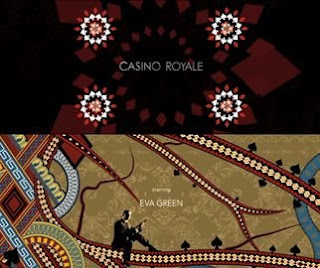A thriller is a film that uses methods such as violence, music and unanswered questions to make you tense and build suspense. These films often try to scare you or make you jump. They can also be quite violent and are mostly aimed at older audiences, usually 15+.
There are lots of sub-genres of thriller including:
- Conspiracy thriller
- Crime thriller
- Legal thriller
- Medical thriller
- Psychological thriller
- Supernatural thrillers
- Techno thrillers
There are often twists in the story, and these are often put in when you think something is about to happen, usually when you think the hero is going to be successful (e.g in "Seven", the killer turns himself in and you think they have succeeded, until he says there are two more victims)
Codes and Conventions
- CK Chesterton- The Transformed City: Set in modern times and mainly in urban, built up areas, and 'transforms the ordinary into the extraordinary'
- Northrop Frye- The Heroic Romance: The hero is nearly always a normal person but are forced into strange circumstances and are forced to act differently because of it. 'Moves in the world in which ordinary laws of nature are slightly suspended'
- John Cawelti- The Exotic: similar to 'The Transformed City', but it introduces unfamiliar situations, objects, settings and characters
- W H Matthews- Mazes and Labyrinths: originates from Greek mythology. It can be both literal and metaphorical. Often involves puzzles that the hero has to solve, or mazes they have to get through
- Pascal Bonitzer- Partial Vision: The audience only see so much to build up suspense and make you more interested in the film. There are questions that are left unanswered to make you watch the rest of the film and sometimes what you don't see is just as important to the film as what you do.
- Lars Ole Saurberg- Concealment and Protraction: deliberately hiding something from the audience and then delaying the predicted outcome, so even though you may know what's going to happen, it makes it more interesting if it takes longer and seems like what you think may not happen.
- Noel Carroll- The Question/Answer Model: the audience are presented with a question, and tension and suspense is built when the answer is delayed. A battle against the odds is more interesting and makes a better film than a 'sure thing'. The morally right outcome increases the interest of the audience as they don't know if it will end 'morally right'

















